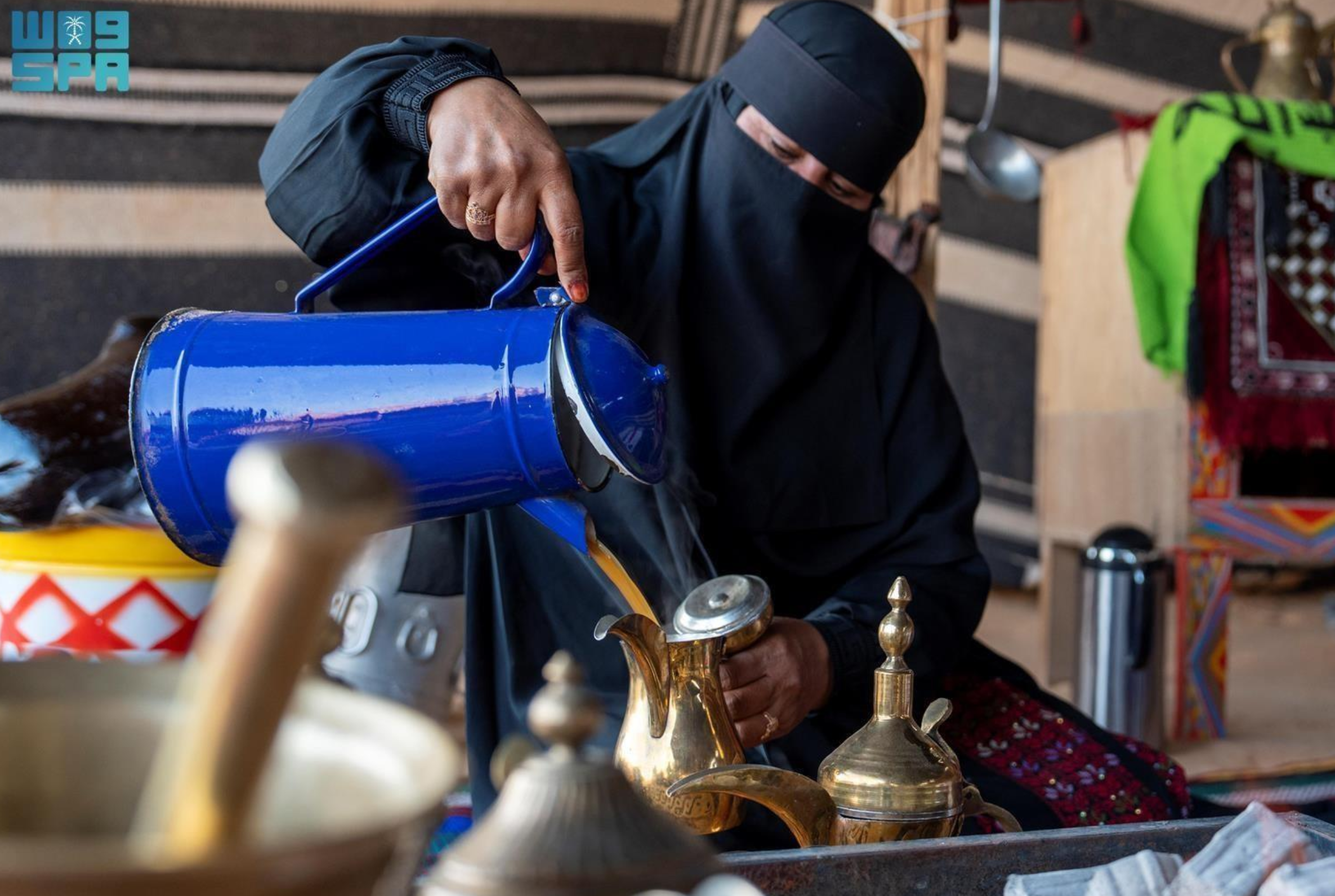
Bedouin Tent: Symbol of Timeless Heritage, Warm Hospitality
The Bedouin tent is a central symbol of Bedouin life in the Arabian Peninsula, serving as both shelter and a vibrant social and cultural hub that embodies an ancient heritage filled with stories of generosity, poetry, and community.
Al-Jouf craftswoman Lufwa Al-Fuhaiqi inherited the art of tent-making from her mother and grandmother and continues the tradition today using goat hair and Najdi sheep wool. The detailed process begins with shearing the wool, followed by washing, drying, and spinning it into strands that are then woven into large pieces to form the tent. According to Lufwa, tent-making is a collaborative effort where more hands help speed up the work.
She explained that the type of tent is determined by the season. Black goat hair is used for winter tents because it provides warmth, while white tents are preferred in summer for their cooling properties. The craftswoman uses simple tools to create the tents, including a spindle, a wooden or iron tool for tightening the threads, nails for securing the wool, and sewing thread.
This enduring tradition, passed down through generations, ensures that the ancient heritage of the Bedouins remains alive.








